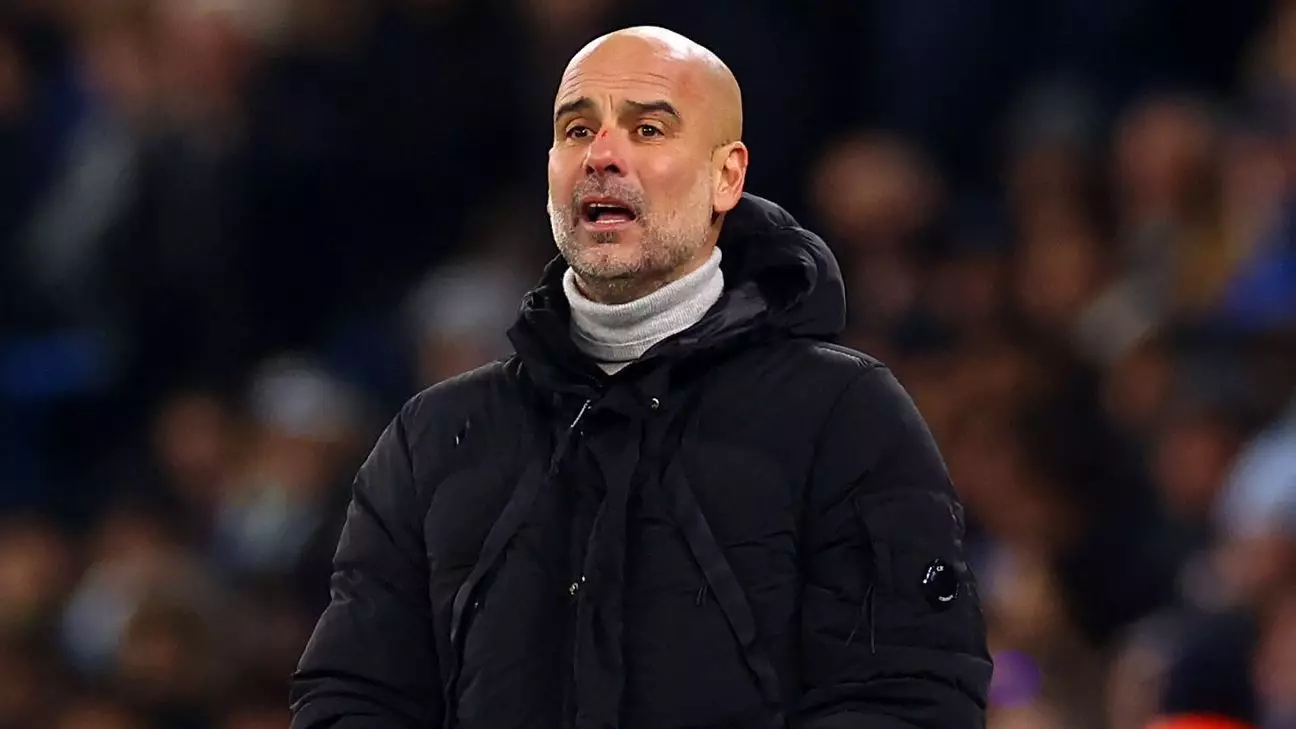In a high-stakes environment like professional football, emotions often run high, and comments made in the heat of the moment can quickly become contentious. This was starkly evident when Manchester City manager Pep Guardiola found himself in hot water following a press conference that took place after a shocking 3-3 draw against Feyenoord in the UEFA Champions League. Guardiola entered the conference visibly affected by the match, with visible scratches on his face. When questioned about his injuries, he jokingly remarked, “I want to harm myself,” a quip that was intended to highlight his frustration but instead sparked outrage due to its glib nature in the context of serious mental health issues.
The backlash was swift and critical. The nature of his remarks bore the weight of a sensitive societal issue, leading to widespread concern and misunderstanding. Recognizing the potential for misinterpretation, Guardiola took to social media the following day to clarify his statements. In his post, he emphasized that his comment was not meant to trivialize self-harm or mental health struggles, stating, “My answer was in no way intended to make light of the very serious issue of self-harm.” Through this clarification, Guardiola highlighted the importance of addressing mental health while simultaneously acknowledging the unintended offense caused by his earlier comments.
Guardiola’s comments came against the backdrop of a troubling phase in his managerial career, as Manchester City faced its worst run of form in years. With five consecutive losses leading up to the draw against Feyenoord, Guardiola was arguably under intense pressure not only to perform but to maintain the morale of a team that was unraveling. This discomfort is compounded by the fact that no team had previously relinquished a three-goal lead as late as the 75th minute in Champions League history, amplifying the embarrassment of the outcome.
The emotional strains of such outcomes raise questions about the mental well-being of coaches and players alike. High-profile coaches like Guardiola shoulder immense responsibility, and the consequences of their team’s performance can weigh heavily on their psyche, leading to moments of misjudgment or flippancy, as demonstrated in this situation.
Utilizing his platform, Guardiola took the opportunity to encourage discourse around mental health by directing resources to those who may be struggling, specifically through the Samaritans hotline. His initiative to promote awareness is commendable and emphasizes the larger narrative of mental health in sports—a topic that has gained visibility in recent years but still requires greater acknowledgment and sensitivity.
As Manchester City prepares to face Premier League leaders Liverpool in their next match, the pressure will continue to mount for Guardiola. This incident serves as a poignant reminder that beneath the glamour and competitive spirit of football lie complex emotions and human struggles. Whether he can turn around his team’s fortunes and navigate the pressures of his role successfully remains to be seen, but one hopes that this incident encourages a broader conversation about mental health support within the sporting community.

